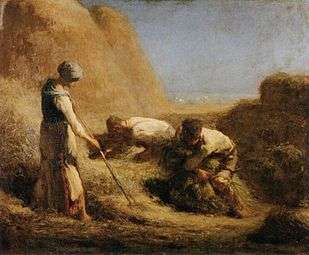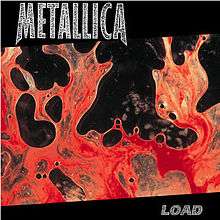Wind engineering
Wind engineering is a subsets of mechanical engineering, structural engineering and applied physics to analyzes the effects of wind in the natural and the built environment and studies the possible damage, inconvenience or benefits which may result from wind. In the field of engineering it includes strong winds, which may cause discomfort, as well as extreme winds, such as in a tornado, hurricane or heavy storm, which may cause widespread destruction. In the fields of wind energy and air pollution it also includes low and moderate winds as these are relevant to electricity production resp. dispersion of contaminants.
Wind engineering draws upon meteorology, fluid dynamics, mechanics, geographic information systems and a number of specialist engineering disciplines including aerodynamics, and structural dynamics. The tools used include atmospheric models, atmospheric boundary layer wind tunnels, open jet facilities and computational fluid dynamics models.
Wind engineering involves, among other topics:

Truss (unit)
A truss is a tight bundle of hay or straw. It would usually be cuboid, for storage or shipping, and would either be harvested into such bundles or cut from a large rick.
Markets and law
Hay and straw were important commodities in the pre-industrial era. Hay was required as fodder for animals, especially horses, and straw was used for a variety of purposes including bedding. In London, there were established markets for hay at Smithfield, Whitechapel and by the village of Charing, which is still now called the Haymarket. The weight of trusses was regulated by law and statutes were passed in the reigns of William and Mary, George II and George III. The latter act of 1796 established the weights as follows:
In summary then, the standard weights of a truss were:
and 36 trusses made up a load.
Trussing
A detailed description was provided in British Husbandry, sponsored by the Society for the Diffusion of Useful Knowledge,
This done, he measures the cut to be made in the stack, which is decided by the usual size of the trusses — each being as nearly as possible three feet by two and a half, and thick in proportion to the fineness and closeness of the hay; those of the best quality being the thinnest. He then mounts the ladder and cuts perpendicularly through the thatch, as far down as will produce the requisite number of trusses. This he does with a very strong and sharp knife, about thirty inches in length by nearly six in breadth of the blade, and formed as in fig. 2. The handle is however often made short and straight from the blade, but the form above represented allows of more power being exerted by the workman in cutting through the stack, and it is an operation which demands considerable strength.

Load (album)
Load is the sixth studio album by American heavy metal band Metallica, released on June 4, 1996, by Elektra Records. It sold 680,000 units in its first week, making it the biggest opening week for Metallica and the biggest debut of 1996.Load debuted and spent four consecutive weeks at number one on the Billboard 200 chart. It was certified 5× platinum by the Recording Industry Association of America (RIAA) for shipping five million copies in the United States. Four singles; "Until It Sleeps", "Hero of the Day", "Mama Said", and "King Nothing", were released as part of the marketing campaign for the album.
The album showed more of a hard rock side of Metallica than the band's typical thrash metal, which upset their fans. It also featured influences from genres such as Southern rock, blues rock, country rock and alternative rock. Drummer Lars Ulrich said about Load's more exploratory nature, "This album and what we're doing with it – that, to me, is what Metallica are all about: exploring different things. The minute you stop exploring, then just sit down and fucking die."
Wind (band)
Wind is the name of a German musical group that mostly plays "schlager" music. The band is still active, more than 20 years after its foundation.
History
The group was started in 1985 by the composer Hanne Haller. The members of the band at that time were Alexander "Ala" Heiler, Christiane von Kutschenbach, Rainer Höglmeier, Willie Jakob, Sami Kalifa and Petra Scheeser.
The group has participated in the Eurovision Song Contest for Germany three times. The first time was shortly after the formation of the band, in Eurovision 1985. With the song "Für alle" ("For All") they finished second, just behind the winning duo Bobbysocks from Norway. In 1987 Wind returned to the contest, performing "Laß die Sonne in dein Herz" ("Let the Sun in Your Heart") in Brussels, Belgium. Once again they achieved a second place, this time behind Johnny Logan who represented Ireland. "Laß die Sonne in dein Herz" has since become the band's trademark tune, including welcoming visitors to their official website. Wind entered Eurovision for a third time in 1992 in Malmö, Sweden, with the song "Träume sind für alle da" ("Dreams Are For Everyone"). This time they were not as successful, finishing 16th of 23 participants. According to John Kennedy O'Connor in his book The Eurovision Song Contest: The Official History, Wind are the only act to ever finish second in the contest on two occasions.

Wind Mobile
Wind Mobile is a Canadian wireless telecommunications provider operated by Globalive. It was one of several new mobile carriers launched in Canada after a government initiative to encourage competition in the wireless sector, alongside Mobilicity (later acquired by Rogers Communications) and Public Mobile (later acquired by Telus). With 940,000 active subscribers, Wind is Canada's fourth-largest mobile operator.
Wind initially launched mobile data and voice services in the Greater Toronto and Hamilton Area, Ontario on December 16, 2009 and two days later in Calgary, Alberta. Since then, Southern Ontario has been the main target of network expansion: first with Ottawa in Q1 2011, and then with about half a dozen additional regions, the most recent being Brantford on July 3, 2014. In Western Canada, coverage was added to Edmonton, Alberta and has expanded around Edmonton to include Sherwood Park, Fort Saskatchewan, St. Albert and Edmonton International Airport; additionally, British Columbia was also added for most of Greater Vancouver area plus Abbotsford and Whistler.

Air (classical element)
Air (also sometimes called Wind) is often seen as a universal power or pure substance. Its fundamental importance to life can be seen in words such as aspire, inspire, perspire and spirit, all derived from the Latin spirare.
Greek and Roman tradition
Air is one of the four classical elements in ancient Greek philosophy and science. According to Plato, it is associated with the octahedron; air is considered to be both hot and wet. The ancient Greeks used two words for air: aer meant the dim lower atmosphere, and aether meant the bright upper atmosphere above the clouds.Plato, for instance writes that "So it is with air: there is the brightest variety which we call aether, the muddiest which we call mist and darkness, and other kinds for which we have no name...." Among the early Greek Pre-Socratic philosophers, Anaximenes (mid-6th century BCE) named air as the arche. A similar belief was attributed by some ancient sources to Diogenes Apolloniates (late 5th century BCE), who also linked air with intelligence and soul (psyche), but other sources claim that his arche was a substance between air and fire.Aristophanes parodied such teachings in his play The Clouds by putting a prayer to air in the mouth of Socrates.
Podcasts:

